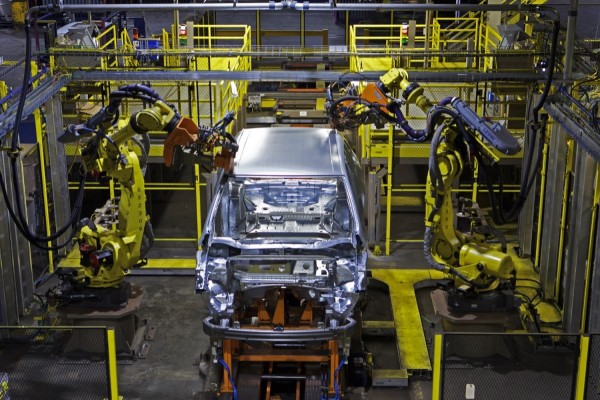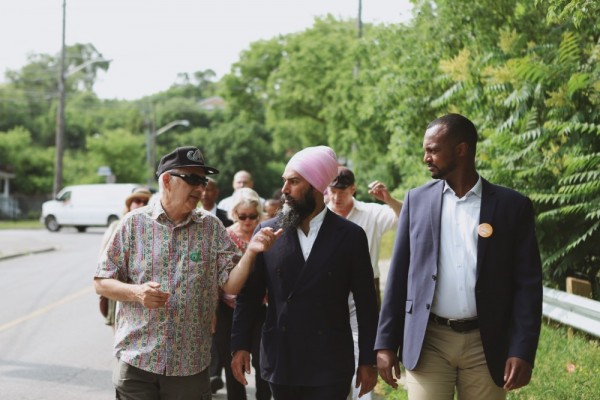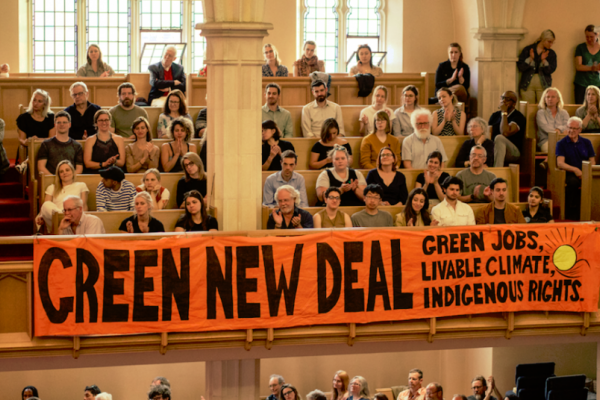Trudeau’s ‘progressive’ trade agenda is anything but

Prime Minister Justin Trudeau. Photo courtesy of FORTUNE Global Forum.
Mass protests against free-trade agreements have died off since the days of the annual confrontations in the aughts, but this is at least in part because progress on opening trade globally appears to have stalled. In recent years, international trade volumes relative to global GDP even fell substantially for the first time in decades.
Canada, however, has pushed back against this tide over the past few years, signing several major new pacts. While Stephen Harper’s government was, unsurprisingly, a big proponent of trade deals, Justin Trudeau’s Liberals have taken up this mantle, actively courting many of the same agreements under the banner of a “progressive trade agenda.”
Like so much else the Liberals have done, this agenda is more a new paint job than a wholesale rebuild. Nevertheless, critical debate has been limited. The media has mostly played cheerleader: any free trade agreement is good as long as it is signed. Coverage has been monopolized by play-by-play negotiations more at home in the rink than in the public square, coverage that overlooks the most important aspect of any deal — its substance.
So let’s take a quick but substantial look at some of the big agreements that Trudeau’s government has signed and what is in them.
First, Trudeau concluded negotiations on the Comprehensive Economic and Trade Agreement (CETA) between Canada the EU. The pact has already mostly been in effect since 2017. As with most freetrade agreements, its text is enormous, and goes far beyond simply lowering tariffs, extending to many areas of public policy. It includes greater protections for pharmaceutical patents, thus raising drug prices; it makes it harder for governments to expand public services or bring privately operated services back into public hands; and it places limits on public regulation and procurement. And, while corporations and investors get ironclad legal protections throughout, workers and the environment get flowery platitudes without stringent enforcement mechanisms.
Trudeau also continued negotiations of the Trans- Pacific Partnership (TPP), which he inherited from Stephen Harper — now called the “Comprehensive and Progressive” TPP (CPTPP), since Trump pulled the U.S. out of the negotiations. The deal, however, is largely unchanged from the old TPP. Yet again, it protects business while containing little in the way of enforceable protections for workers or the environment. CPTPP includes provisions for investorstate dispute settlement (ISDS), a mechanism by which corporations can sue governments if they think that national regulations (say, higher environmental or labour standards) are “unfairly” hurting their business. Comprehensive it may be, but certainly not progressive!
An analysis of the new NAFTA, or USMCA, concluded much more recently, is a bit more mixed. Negotiators removed NAFTA’s notorious Chapter 11 and its ISDS provisions, under which Canada, of the three signatory countries, was the one most frequently sued by corporations. And some of the labour standards are a step in the right direction: for example, enforceable provisions for free collective bargaining and democratic representation should limit the role of harmful company unions in Mexico. On the other hand, the agreement includes incredibly weak and non-binding language on environmental standards — with no mention of climate change — and also extends intellectual property protections for pharmaceuticals, meaning Canadians will pay a lot more for medicines.
It is difficult to see the germ of progressive economic policy in nearly any of the thousands of pages of these agreements. While Trudeau’s Liberals were selling the image of a new trade agenda, trade negotiators have been putting in place the same rules meant to hamstring democracy and put the right to profit ahead of the rights of people.
This hamstringing is a feature, not a bug. As neoliberalism — the view that the market is best able to govern most aspects of social life and that individual solutions surpass collective ones — becomes further entrenched in Canadian political life, freetrade agreements play an important role: they make it more difficult to back out. These pacts allow states to voluntarily tie their own hands; neoliberalism needs international rules to keep local governments in line.
While the left cannot join the right’s and far-right’s attacks on internationalism, Trudeau’s trade agenda is no answer to these attacks either. In its stead, we need a left internationalism that prioritizes freedom for people, is not afraid to put limits on capital, fights climate change equitably, and supports workers everywhere.
Michal Rozworski is a union researcher and writer. One of Canada’s leading young left economists, he blogs at Political Eh-conomy.
This article appeared in the Fall 2018 issue of Canadian Dimension (An Unjust Justice System).










